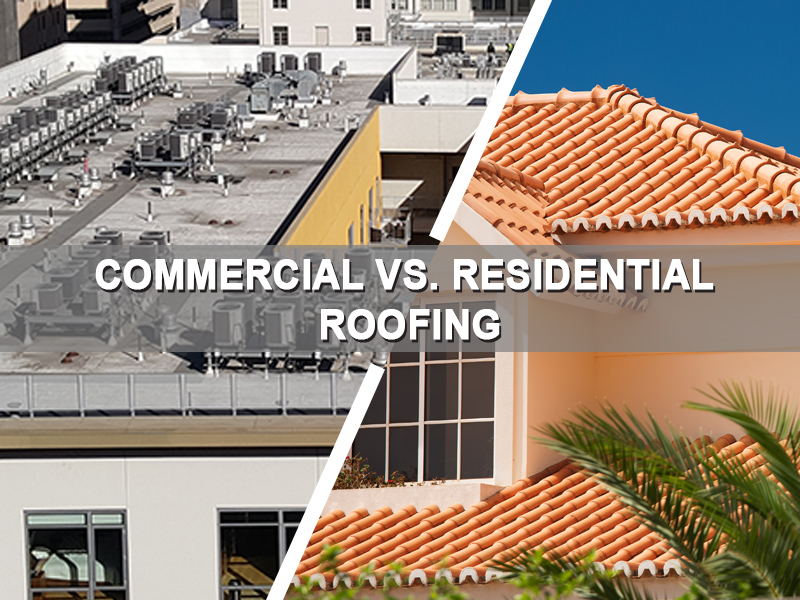Regardless of the style, color, and material, residential and commercial roofing share the same purposes: to shield you from outside elements, protect your property from damage caused by leaks, and boost your curb appeal.
While these two types of roofs may not seem too dissimilar, they have significant differences that define them. Knowing and understanding what makes them unique is important to help you ensure that you are working with the contractor that best addresses your needs, using the right specialized tools and materials, and hiring the proper and required labor for your roofing system. This way, you can ensure that your roof is safe and durable.
To help you learn more about the major differences between residential and commercial roofs, read the list below:
1. The Design
Commercial properties are generally large and spread out. To cover such a huge size, it is ideal to use a flat roofing system. This type of roof has complex design elements that allow it to withstand the weight of heating and cooling equipment placed on top of the roof, such as airflow systems, chimney, and cooling systems, external pipes, and smokestacks. Also, this roof can cover different areas of your property, including your garden.
Residential properties, on the other hand, have simple design elements. This is because it is unlikely that you need complicated cooling and heating systems at home.
Working with a trusted roofing contractor is essential to ensure the excellent quality of your roof. Whether you need commercial or residential roofing, you can depend on our company that specializes in premier roofing in San Diego.
2. The Materials
One of the key differences between commercial and residential roofing is that commercial roofs prioritize quality and performance.
Commercial roofs are usually made from a high-quality single-ply membrane that allows you to cover a huge size of property without having to break the bank. Meanwhile, residential roofs focus on aesthetics. The roofing materials for both types differ in their lifespan and costs.
If you are looking for some of the most popular roofing materials you can use for your residential or commercial property, then feel free to choose from asphalt, ceramic, metal, slate, tile, and wood. You may also pick among pre-built roof materials and solar installations or shingles. Meanwhile, if you need some help deciding on the right roofing materials for your residential or commercial roofing in San Diego, then you can turn to us for help.
3. The Process of Roofing Installation
The roofing installation process depends on the type of your roofing system as it relies on its size and overall structure. Since residential roofs are easier to install, they take only several days to be completed. On the other hand, commercial roofs are much complicated to install because they usually require specialized tools and a larger team, which means their installation process can take a few weeks to finish.
Conclusion
Your roofing system depends on the type of your property and your needs. By using the list above as your guide, you can ensure the quality and beauty of your roof. Make sure to hire only a competent contractor for all your roofing needs.
Pioneer Roofing Company is a professional roofing contractor in San Diego. We specialize in commercial roofing, residential roofing, and roof repairs. Contact us to request a free quote!

